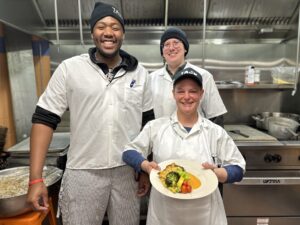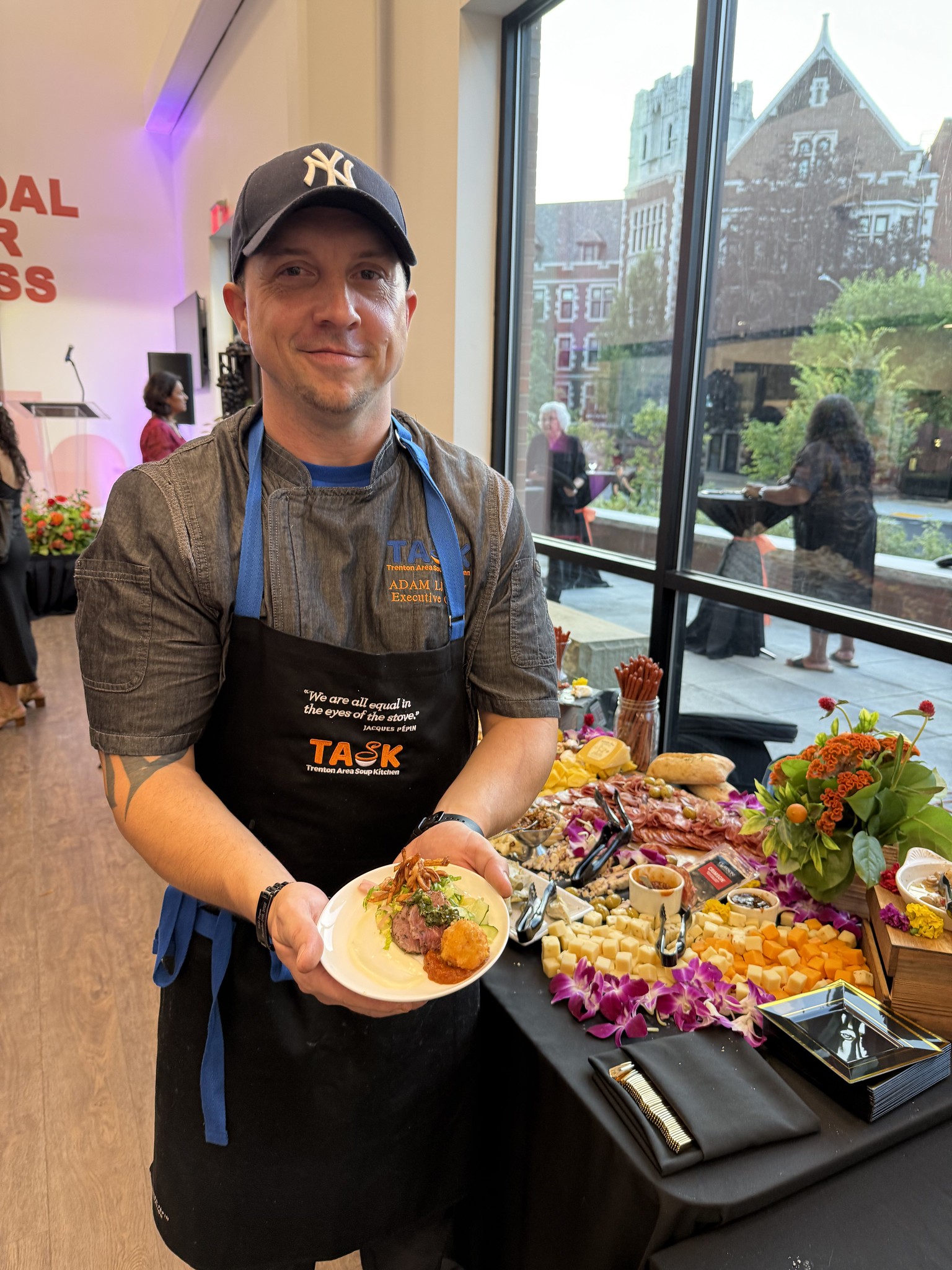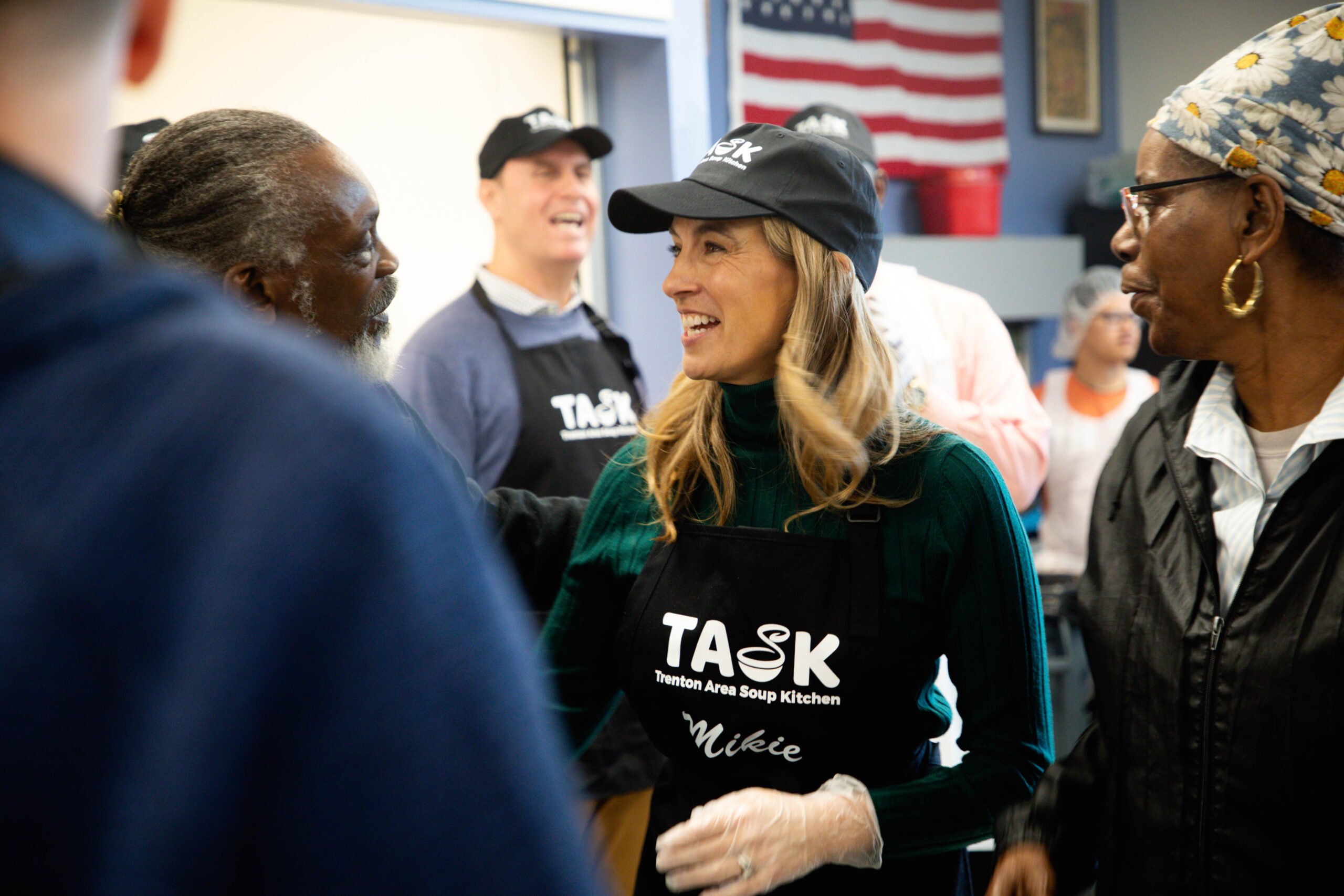News, Events & Stories
Culinary Program Offers a Fresh Start
Emilio’s Culinary Academy helps nontraditional students find success in the kitchen and in life
TASK Chief Operating Officer Paul Jensen has long envisioned creating a culinary training program that would be good for both students and the TASK kitchen.
As Jensen learned of courses offered by similar agencies across the state, it became clear that such a program would be a great fit for TASK. The Board of Trustees agreed and hence Emilio’s Culinary Academy — named in memory of Emilio Papa, one of TASK’s most beloved and dedicated volunteers — was born.
Serving Hope to Nontraditional Students
In 2019, Jensen turned to Catalyst Kitchens, a national network of nonprofit teaching kitchens, to develop the curriculum for TASK’s culinary program. Jensen currently serves on their Board of Directors.
Jensen says he wanted TASK’s culinary academy to work for people who are unable to afford traditional professional culinary training or who would feel uncomfortable and unsupported in such a program.
“We serve the nontraditional student. Often, our students are managing challenges that can include former incarceration, unstable housing, addiction or other trauma.”
Adam Livow, a classically-trained chef, was hired to lead the new culinary academy. As TASK’s Director of Culinary Operations, he helped to design and now oversees the program, which teaches students the culinary skills they need to secure employment in a professional kitchen along with the soft skills that will prepare them for long-term employment and professional growth.
Today, TASK offers the only program of its kind in Mercer County. Emilio’s Culinary Academy is not only free, but students also receive a stipend of $56 per day to ensure that cost is not a barrier to participation. In addition, TASK offers students — many of whom are also TASK patrons — wraparound support, including workforce training and case management, to bolster their chance of success once they graduate from the program.
A Guided Path to Self-Sufficiency
Emilio’s Culinary Academy welcomed its first class in February 2020. A few weeks later, COVID hit. The program was suspended for a few weeks, but reopened with precautions about a month later. Although there were some interruptions during the pandemic, the first class graduated several months later. Since then, 28 students have completed the program.
Each course lasts approximately 10 weeks, including eight weeks of practical culinary education and a two-week internship in the TASK kitchen. Classes take place in a dedicated training kitchen, separate from TASK’s main kitchen, where students receive hands-on training from Chef Livow.
The curriculum includes critical professional skills, such as three levels of knife skills; writing prep lists and ordering culinary ingredients; utensil and equipment identification and proper use; kitchen calculations; basic baking; and an introduction to dressings, vinaigrettes, stocks and sauces. Ultimately, students must take and pass their ServSafe® exam — a 90-question multiple-choice test — which provides a certificate to demonstrate their mastery of safe and hygienic kitchen skills.

Meeting Unique Needs
Soft skills training is a critical component of Emilio’s Culinary Academy curriculum. This training is managed by Becky Bewtra of Design Your Own Career. TASK Computer Resource Specialist Carloyn Burke provides basic technology training and ongoing support after graduation. Workforce Development Coordinator Sean Ford aids students with their job searches and helps them navigate issues that may arise after they are in the workplace.
In addition, TASK case managers assist students with obtaining IDs, housing, transportation and other services that can make the transition to full-time employment more likely to succeed.
Jensen highlights the value that this one-stop approach adds to the quality of TASK’s program:
“Traditional culinary training programs lack support for the challenges our students face, making it less likely that they will graduate.”
At TASK, students come to the program with a wide range of professional and interpersonal skills. They often lack the technological knowledge to create a resume or complete online employment applications. They may be experiencing instability in certain areas of their lives. Some have no cell phone so they cannot respond to a prospective employer.
TASK’s culinary program devotes a significant amount of resources to students to not only ensure that they graduate but that they also develop the skills and experience they need to maintain and thrive in the workforce.
Success in the Kitchen and Beyond
Shantell Bacon-Jones, a young, single mother of three, joined the program with hopes of getting stable employment after graduation. Not only did Bacon-Jones graduate from the academy, but she has also been consistently employed for over a year, has an apartment and is looking for a car to help her get to work.
“I’m so grateful to TASK for this opportunity!” says Bacon-Jones.
Graduates have found success working in the kitchens at local restaurants as well as Capital Health, Sodexo and Rider University. Others have gone on to gainful employment at places like Philadelphia Circus Squad, helping to break the cycle of poverty for others.
Chef Livow says he’s grateful and pleased to be able to serve nontraditional students. While he acknowledges that TASK students often face significant barriers, which can sometimes impede or delay their ability to graduate, the program is committed to offer as much flexibility as possible.
“We have formerly underemployed or unemployed students graduating with enough skills to step into professional kitchens — and getting job offers,” Livow says. “Once they have a steady paycheck and can see that they have career growth potential, they are on the path to self-sufficiency.”



